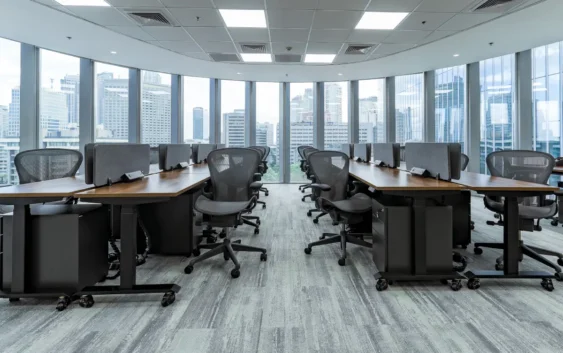Transforming the Modern Office: Creating a Productive

The traditional office space has evolved significantly over the years, reflecting changes in technology, work culture, and employee preferences. In the contemporary business landscape, the 오피가이드 is not merely a physical space but a dynamic environment that plays a crucial role in fostering productivity, innovation, and employee well-being. This article explores key aspects of the modern office, delving into design trends, collaborative tools, and strategies that contribute to a thriving work environment.
- Flexible Workspace Design:
Modern offices prioritize flexibility in design to accommodate diverse work styles. Open floor plans, modular furniture, and designated collaborative spaces promote a dynamic work environment that caters to the needs of individual employees and collaborative teams. The goal is to create a balance between focused work and group interactions.
- Technology Integration:
Advancements in technology have reshaped the way we work. Modern offices leverage cutting-edge technologies to enhance communication, collaboration, and efficiency. Cloud-based platforms, video conferencing tools, and collaborative software contribute to seamless workflows, allowing employees to work together regardless of their physical location.
- Employee Well-being:
Recognizing the importance of employee well-being, modern offices prioritize comfort and health. Ergonomic furniture, natural lighting, and designated spaces for relaxation and recreation contribute to a positive work environment. Additionally, the integration of greenery and plants has been shown to improve air quality and create a more aesthetically pleasing atmosphere.
- Remote Work Integration:
The rise of remote work has prompted offices to rethink their structures. Modern offices embrace the concept of a hybrid work model, allowing employees to work both in-office and remotely. This flexibility not only accommodates diverse preferences but also enhances work-life balance and overall job satisfaction.
- Collaborative Spaces and Tools:
Collaboration is at the heart of innovation, and modern offices recognize the importance of providing spaces and tools that facilitate teamwork. Designated meeting rooms, brainstorming areas, and digital collaboration tools empower employees to work together seamlessly, fostering creativity and problem-solving.
- Emphasis on Sustainability:
Modern offices are increasingly adopting sustainable practices. From energy-efficient lighting to waste reduction initiatives, environmentally conscious design contributes to a company’s social responsibility efforts. Sustainable practices not only benefit the planet but also align with the values of employees and clients.
Conclusion:
The modern office is a dynamic and adaptive space that goes beyond traditional notions of workspaces. By incorporating flexible designs, embracing technology, prioritizing employee well-being. And fostering collaboration, businesses can create environments that inspire creativity. Boost productivity, and adapt to the ever-changing demands of the professional world. As we continue to witness the evolution of work culture, the modern office stands as a testament to the importance of creating spaces that empower employees and drive organizational success.
